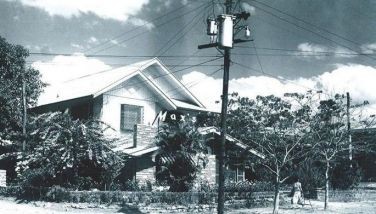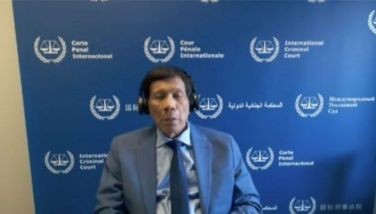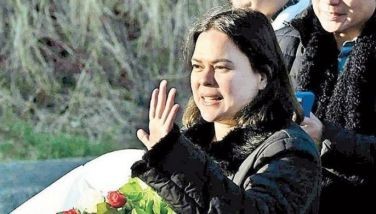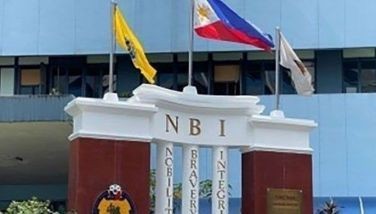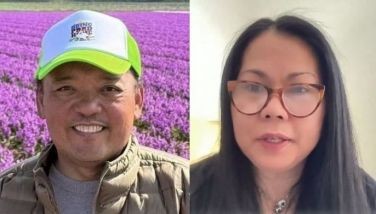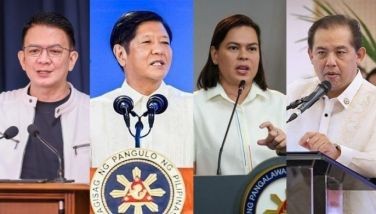The writer as liberator
As part of its Independence Day celebration, the J. Amado Araneta Foundation asked me to give a talk on “The Writer as Liberator” last Saturday, and today being Jose Rizal’s birthday, I’m very happy to share some excerpts from that talk:
The first thought that crosses our mind when we hear “The Writer as Liberator” is very likely that of the writer as political revolutionary or dissident, in the mold of Jose Rizal, Marcelo H. del Pilar, Lorraine Hansberry, Alexander Solzhenitsyn, Nadine Gordimer, Wole Soyinka and so many others of their caliber and stature.
Indeed, human history is fraught with examples of writers who fought colonialism, slavery, racial prejudice and feudal and capitalist oppression and exploitation in India, South Africa and the United States, among many if not most other countries in the world. Wherever evil has reared its head, writers have arisen to call it out by name in all its forms – overweening pride among the ancient Greeks, blind ambition in Shakespeare’s time, lust and greed everywhere down the ages. These writers at the forefront of political and social change have included poets, playwrights, novelists, journalists, screenwriters and today we would have to count bloggers and comic book script writers.
The Philippines has been no exception. Decades before Rizal, Francisco Baltazar or Balagtas employed allegory in Florante at Laura to depict suffering and denounce injustice. Rizal and the whole Propaganda Movement followed, in a story of resistance and revolution that many of us already know.
Our heroes and champions of freedom were poets – Rizal and Bonifacio spring to mind, but they were also followed by the likes of Claro M. Recto, Francisco “Soc” Rodrigo, Carlos P. Garcia and Diosdado Macapagal. These men – sadly, our political and even our cultural life was dominated then by the patriarchy – came from a generation when there was a very thin line between journalism and creative writing, when an opinion column could appear in verse and when senators were expected to be literate and eloquent.
This was true of many countries around the world where people were fighting for freedom and justice. In South America, Simon Bolivar – who was known as The Liberator – led the fight for independence from Spain of what became Greater Colombia, but he was also a poet, alongside the Cuban Jose Marti, among others. The Chilean poet and Nobel Prize winner Pablo Neruda wrote a poem in tribute to Bolivar, titled “A Song for Bolivar,” in which he says that “Everything comes from your extinguished life/your legacy was rivers, plains, bell towers/your legacy is our daily bread.”
The line “everything comes from your extinguished life” might as well have applied to Neruda himself, who was murdered by the fascist Pinochet government he opposed. Many writers have died for what they have written – and again we go back to Rizal – but others fought, lived on and even succeeded in their struggles for national liberation. Two of the most prominent were Ho Chi Minh and Mao Zedong, who led long and ferocious wars against both local and foreign oppressors.
In their poetry, Ho and Mao locate the poet at the center of a collective struggle. This idea is developed even more strongly by Jose Ma. Sison – who, by the way, was an English major in UP – in his poem from the 196os titled “The Guerilla is Like a Poet.” Given the aesthetics of the Philippine Left at that time, you could actually reverse this proposition to read “The poet is like a guerilla,” which Emman Lacaba certainly was, as was Ma. Lorena Barros. Decades later, her namesake Kerima Lorena Tariman would write “Pagkilos,” a poem that celebrates motion in both nature and society. Tragically, both Lorenas – and Emman Lacaba before them – would be killed in the struggle that they took on, and be hallowed as revolutionary martyrs.
Now, all this may sound like an open invitation for our favorite red-taggers to call all poets rebels, and all rebels communists. That would be ridiculous. Most poets are still happy and perfectly within their rights to write about the moon and the stars and undying love. Some rebel-poets were proud and self-admitted communists, at a time when the word was invested with a sheen of holiness. But the abject failure of communism to set up a truly free and egalitarian society and its appropriation in both China and Russia by new and autocratic elites has shed much of that romantic mystique, and it is supremely ironic that those writers and artists now fighting for civil liberties in both countries are considered enemies of the state.
“The Writer as Liberator” was an easier concept to deal with when we had a foreign occupier like Spain, America or Japan. Today, our oppressors are internal, lodged within our society, and within our hearts and minds. The liberation we need today is from our worst selves, which is often the hardest enemy to face. Bad leadership has enabled and encouraged that side of us that accepts extrajudicial killing and unjust imprisonment as normal. The minds of so many of our people remain shackled by ignorance, falsehood, prejudice, superstition, fear and a crippling dependency on the old and familiar, however self-destructive they may be.
The writers who will battle this chimera have many weapons at their disposal – not just books and the traditional press but social media, a universe of communication unto itself that Rizal and his contemporaries never dreamed of. Journalists fight with the truth, creative writers fight with the truth dressed up as artistic lies.
I have often said that the best antidote to fake news is true fiction. By this I mean that it often takes artistry and good storytelling, more than a mere recitation of facts, to show people what is true.
When I started my Qwertyman column in this newspaper and began writing what I called “editorial fiction,” a columnist in another newspaper immediately cried “Foul!”, claiming that fiction cannot possibly be taken as opinion. I responded that all fiction is opinion, if you know how to read it closely enough. Like the mirror Perseus used to kill Medusa, we employ fiction to deal with truths we cannot bear to face.
I am under no illusion that the next revolution, whatever it may be against or when, will be sparked by a novel or a poem. Very likely, it will be a viral video that will ignite that flame. I pray it will not be violent, but rather a comprehensive conversion of our people’s minds and spirits for the good. But there will always be a place for the writer in the offices, kitchens and workshops of democracy, on the bunkbeds where we lie dreaming of justice and prosperity for all.
* * *
Email me at jose@dalisay.ph and visit my blog at www.penmanila.ph.
- Latest
- Trending











